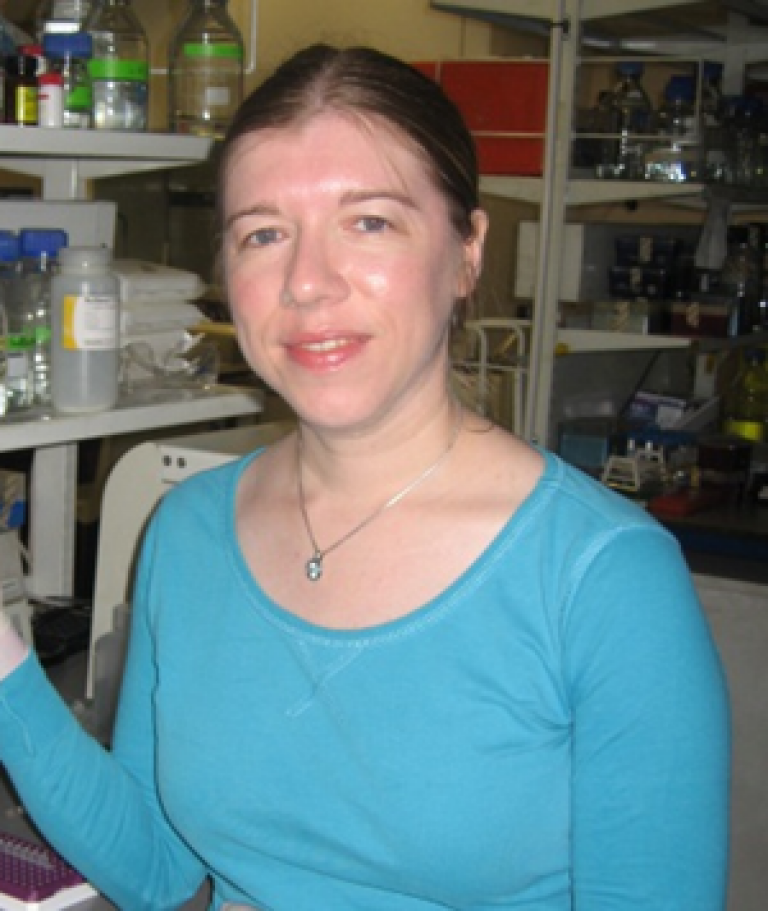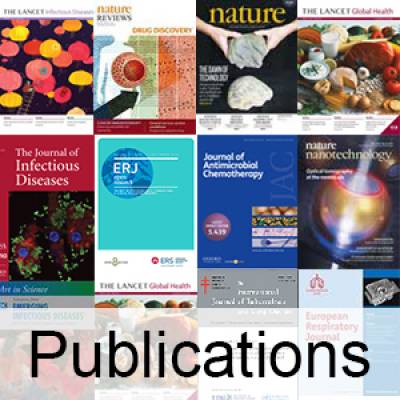Spotlight on: Gillian Tomlinson
5 February 2016

Gillian has been awarded an MRC Intermediate fellowship grant for £1.1m entitled "Tuning the immune response in tuberculosis", hosted by the Division of Infection & Immunity. Read more about her background, team and project work.
What is your background?
I studied medicine at Edinburgh University and undertook postgraduate training in general medicine in Glasgow and London. I began my specialist training in respiratory medicine in Glasgow, and subsequently undertook an MRC Clinical Research Training Fellowship leading to a PhD in Immunology at University College London, which focussed on the roles of monocytes and macrophages in respiratory tract inflammation. I completed my specialist respiratory training within an NIHR Academic Clinical Lecturer post at UCL and I am currently working as a consultant in respiratory medicine in Glasgow. I will return to UCL to take up my MRC Clinician Scientist Fellowship and develop an independent academic research career.
What is the MRC Intermediate Fellowship?
The MRC Clinician Scientist (Intermediate) Fellowship provides four years of funding and aims to develop clinicians who have already obtained a PhD to lead their own research plans and establish their own research team to make the transition to independent investigator. I submitted my application in April, was shortlisted for interview in October, then had two weeks of intensive preparation and mock interviews at UCL before my actual interview in November.
Tell us more about "tuning the immune response in tuberculosis?"
Tuberculosis (TB) remains a global health problem and is characterised by remarkable variability in clinical disease amongst different people. We know that differences in the immune response to TB make a major contribution to clinical outcome, and evidence suggests that the best responses require inflammation, to kill the bacteria, balanced by regulation, to avoid pathology, but the molecular mechanisms that control this are unclear. In my PhD, I showed that deficient regulatory interleukin 10 responses to TB in HIV-1 infected macrophages led to exaggerated pro-inflammatory responses that can exacerbate disease, yet until now, interleukin 10 responses in TB have been considered bad for the host. In this fellowship, I aim to test the hypothesis that a balance of interleukin 10 and pro‑inflammatory responses calibrates the optimal protection against TB disease. I will test this question in a zebrafish mycobacterial infection model, and in human studies using transcriptional profiling of the tuberculin skin test (TST). I will also use the TST to identify other factors that tune immune responses to TB and test whether these influence disease outcome using the fish model. I hope that my research will inform new ways to stratify risk of active disease in latent TB and ultimately, may inform development of host-directed therapies to radically shorten TB treatment. I'm really excited about this project and looking forward to continuing my research.
Who will you be working with?
My project will be hosted in Mahdad Noursadeghi's laboratory within the UCL Division of Infection and Immunity, which combines expertise in host-pathogen interactions, a broad range of advanced cellular immunology methods and significant bioinformatic experience. Key collaborations with local clinicians, Dr Helen Booth, Professor Rob Miller and Dr Marc Lipman and support from an established research nurse team already embedded within clinical TB services will facilitate recruitment of patients to my study. I will also strengthen recently initiated collaborations with Stephen Renshaw (Sheffield University) and Annemarie Meijer (Leiden University) which will be invaluable in providing the wide repertoire of expertise necessary to meet my research objectives.
 Close
Close


